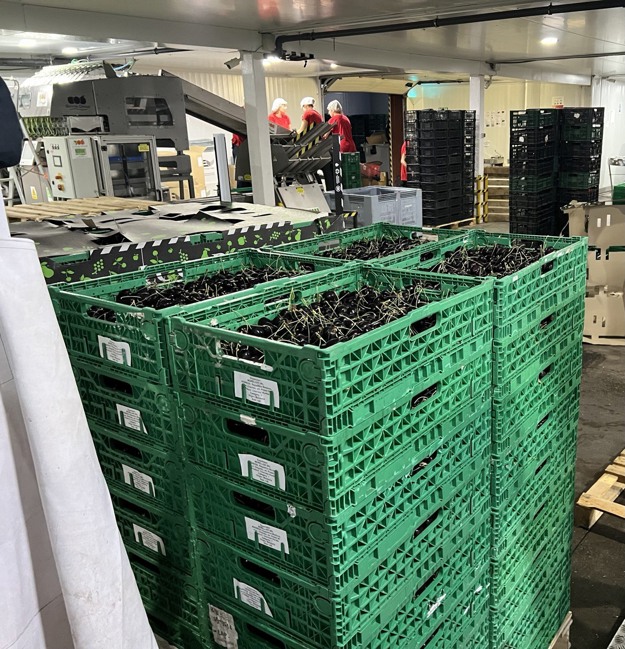The Turkish Statistical Institute reports that the production of sour cherries and cherries has increased by 2.7% and 4.6% respectively, reaching 217,000 tons and 721,000 tons per year.
As a result, the processing industry associated with them has to manage a larger quantity of processing waste, and for this reason, new ways for sustainable disposal are being sought.
Previous research indicates that industrial, agricultural, or municipal residues can be reused through pyrolysis and the formation of biochar.
Applications in asphalt
Straw, nut shells, bamboo, and sugarcane are just some of the products that have been tested in the form of biochar within asphalt, and they have proven advantageous both for improving engineering performance and for enhancing environmental sustainability.
Furthermore, the properties of the aforementioned biological by-products can vary depending on the type of biomass, imparting different characteristics to the final product according to the needs.
As already mentioned, biomass is primarily considered one of the most environmentally friendly energy sources.
Research in Turkey
However, the asphalt industry can benefit from the conversion of a wide variety of biomass into bio-based by-products for more environmentally friendly applications, as they are the result of the significant amount of biological waste generated by natural, industrial, and agricultural activities, and various products have favorable effects on petroleum-based binders.
At Çukurova University and Ege University (Turkey), they have investigated the mechanical, rheological, and chemical properties of bitumen modified with high-content biochar (13%, 15%, and 17%) from cherry and sour cherry waste.
The main objective of this study is to evaluate the feasibility of using cherry and sour cherry residues from the asphalt industry.
Testing and analysis
The performance characteristics of bitumen incorporating cherry waste-based biochar have not been previously investigated, which is why the idea for this study arose.
To optimize production, a slow pyrolysis process that allows for the conversion of more biomass into biochar was implemented.
Conventional tests and advanced rheological analyses were performed on the samples according to a comprehensive procedure.
Microscopic examinations
Furthermore, the chemical compositions and textural characteristics of the materials under examination were analyzed using microscopes.
To determine the compatibility between the bituminous binder and the dispersion of biochar within the binder as well as the storage stability, fluorescence microscope analyses were performed.
The porous and irregular surface morphology of the biochar was revealed by microstructural analysis using a scanning electron microscope.
Results and conclusions
The biochar made from sour cherry waste showed a finer particle size compared to the biochar made from sweet cherry waste.
The results of the experiments indicated that the addition of biochar resulted in an increase in the stiffness of the bitumen, which was directly proportional to the biochar ratio.
The incorporation of cherry pits and sour cherry pits into the bitumen led to an increase in viscosity and reduced sensitivity to temperature fluctuations.
However, the modified mixtures showed a greater susceptibility to loss of elasticity due to aging.
The researchers conclude that in-depth investigations to identify the root causes of incompatibility or to explore methods to improve compatibility could be useful for future work.
Source: Mahyar Yegane, Burak Yiğit Katanalp, Perviz Ahmedzade, Effects of using biochar materials obtained from cherry and sour cherry wastes on itumen modification, Construction and Building Materials, Volume 470, 2025, 140609, ISSN 0950-0618, ttps://doi.org/10.1016/j.conbuildmat.2025.140609
Image source: Suzie Romig
Melissa Venturi
University of Bologna (ITA)
Cherry Times - All rights reserved










